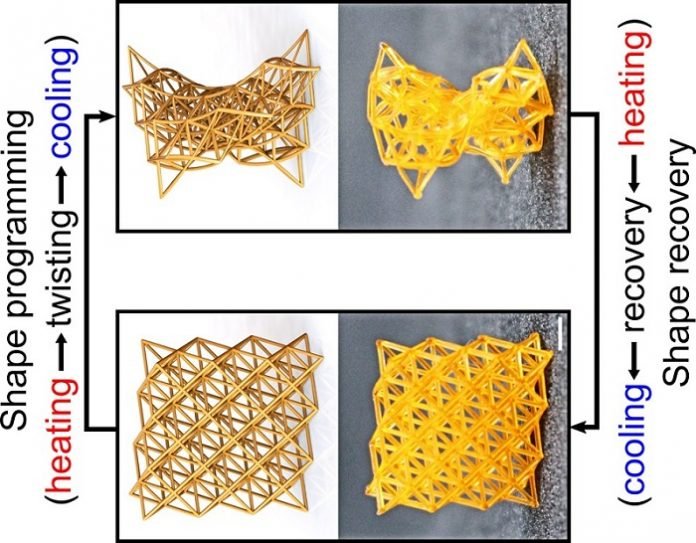
In a new study, Brunswick engineers have created better materials with 4D printing.
The new material could help produce better morphing airplane or drone wings, soft robotics and tiny implantable biomedical devices.
4D printing technology is based on 3D printing. 3D printing is also known as additive manufacturing. It turns digital blueprints to physical objects by building them layer by layer.
In 4D printing, it uses special materials and complex designs to print objects that can change shape with environmental factors such as temperature.
Basically, time is the fourth dimension that allows them to morph into a new shape.
In the study, the researchers developed a new class of “metamaterials”.
The materials have unusual and counterintuitive properties that cannot be found in nature.
Previously, the shape and properties of metamaterials were irreversible once they were manufactured.
But the team can tune their plastic-like materials with heat, so the objects can stay rigid when struck or become soft as a sponge to absorb shock.
According to the researchers, the stiffness can be adjusted more than 100-fold in temperatures between room temperature and 194 degrees Fahrenheit. This allows for great control of shock absorption.
The materials also can be reshaped for different purposes. For example, they can be temporarily transformed into any deformed shape and then returned to their original shape on demand when heated.
Because of this flexibility, the materials can be used in airplane or drone wings and change shape to improve performance.
They can also be used in lightweight structures and larger structures such as solar panels.
With the new materials, soft robots could have different flexibility or stiffness that fit the environment and task demands.
Finally, the materials can be used in tiny devices inserted or implanted in patients for diagnosis or treatment.
They can help creative less invasive and less painful insertion into the body.
The team believes their new finding will create a new pathway to a wide range of applications that will improve technology, health, safety and people’s quality of life.
The senior author is Howon Lee, an assistant professor in the Department of Mechanical and Aerospace Engineering.
Their research appears in the journal Materials Horizons.
Copyright © 2019 Knowridge Science Report. All rights reserved.



